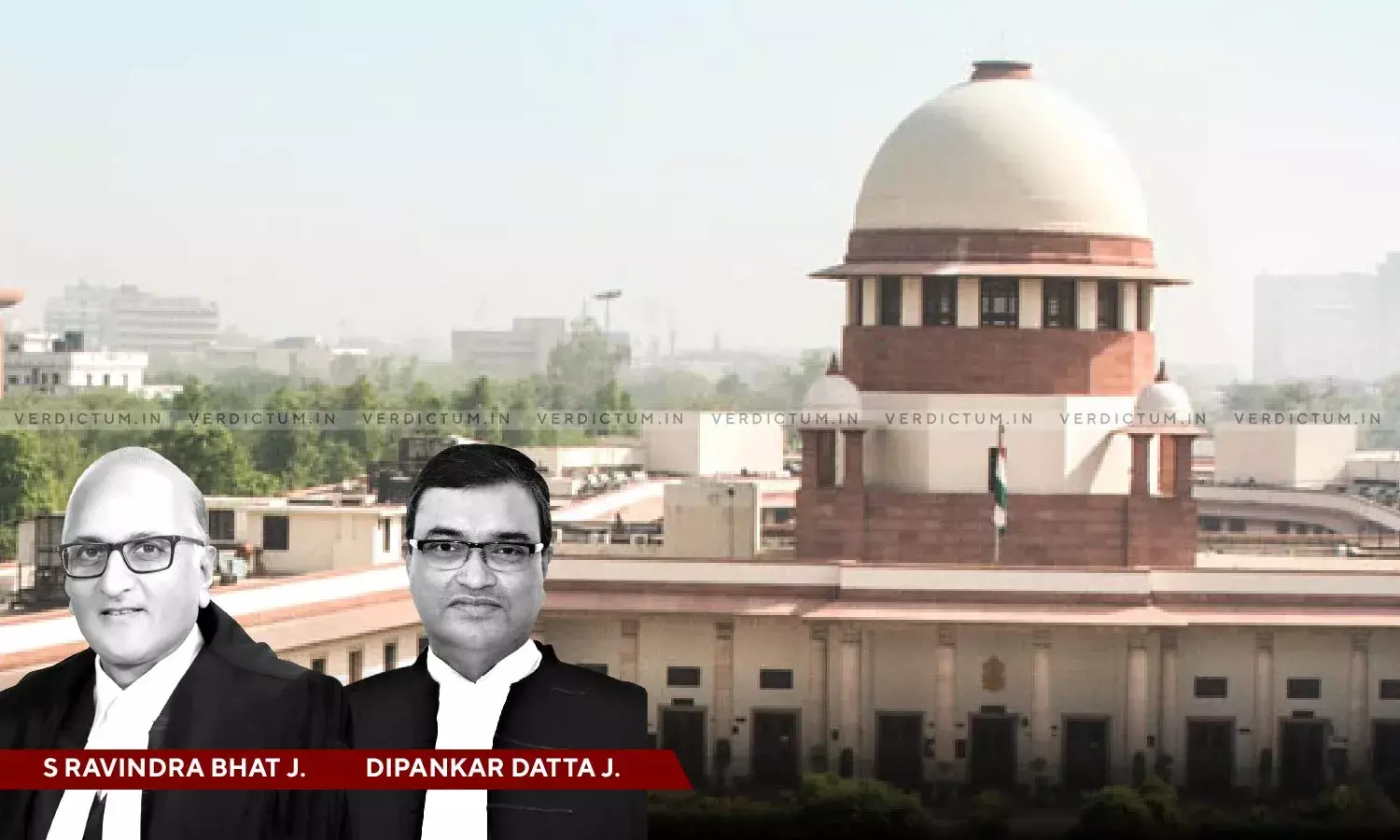"Perfectly Valid Piece Of Legislation, Not Ultra Vires To Any Law" - SC Upholds Validity of HP General Sales Tax Act Provision

A Supreme Court Bench of Justice S. Ravindra Bhat and Justice Dipankar Datta has held that Section 16-B of the Himachal Pradesh General Sales Tax Act is not ultra vires to any provision of the law thereby upholding the validity of the statute.
Counsel Abhinav Mukerji appeared for the appellants before the Court.
In this case, the issues primarily revolved around Section 16-B of the Himachal Pradesh General Sales Tax Act, 1968. The Section provides for tax to be the first charge on property.
The Court framed the following issues and answered them accordingly.
(i) Whether, in view of the dismissal of the special leave petition, the judgment and order outlawing Section 16-B of the HPGST Act can be examined?
Relying on the decision in AR Antulay vs RS Nayak, the Court concluded that "the High Court by its judgment and order dated 2nd January, 2008 decided an infructuous writ petition and, in the process, outlawed section 16-B of the HPGST Act when the same was not at all warranted".
Accordingly, the first issue was answered in the affirmative.
(ii) Whether Section 16-B of the HPGST Act should have been outlawed by the High Court on the ground that it is ultra vires the Constitution or the Banking Companies Act.
The Court took a clear stance that the question should be answered in the negative.
Referring to the decision in the case of Central Bank of India vs State of Kerala, the Court observed that "section 16-B of the HPGST Act is a perfectly valid piece of legislation and is not ultra vires the Constitution and/or the Banking Companies Act as erroneously held in the decision of the High Court dated 2nd January, 2008. Also, following the decision in Central Bank of India (supra), we hold that any observation in the decision dated 7th September, 2007 touching upon section 16-B of the HPGST Act vis-à-vis section 35 of the SARFAESI Act is of no effect".
(iii) Whether the High Court was justified in returning the findings that the State's claim of first charge on the subject properties is not substantiated?
The Court observed that "the State and its department either overlooked or were ignorant of the requirement of law that section 16-B would be attracted only after determination of the liability and upon any sum becoming due and payable; and that, it is only thereafter that the charge, if any, would operate".
In furtherance of the same, it was observed that "no relevant documentary evidence having been placed before the High Court, when CWP 306 of 2007 was being heard, to indicate that necessary steps under the HPGST Act had been initiated by the State and its officers, the third issue has to be answered by holding that the State not having taken steps as required by law for realization of its dues, there was no determination of liability, a fortiori, question of taking recourse to the HPLR Act for recovery of dues as arrears of land revenue did not arise. Without such determination of liability, no red entry marks could have been inserted in the revenue records and the High Court was right in holding that the State ought not to have refused mutation".
(iv) Whether the dismissal of the review petition/application for recall instituted by the State by the High Court suffers from any infirmity, legal or otherwise?
The Court noted that "A recall application under section 151 of the CPC, therefore, was not the proper remedy in the circumstances. When the law provides a specific remedy, it is not open to a party to take recourse to section 151. It preserves the inherent powers of the court to do justice in a case where the party has no other remedy under the CPC".
In light of the same, it was observed that "No error apparent on the face of the record was pointed out, which is the first ground for seeking a review. Documents were annexed to the application, which were in existence when the reply to CWP 306 of 2007 was filed by the State and no case had been set up that despite discharge of due diligence, such documentary evidence, which were in existence, could not be annexed to the said reply. Much indulgence is shown to the State Governments when they carry judgments/orders in time-barred appeals/revisions, having regard to the impersonal machinery being involved. However, undue indulgence cannot be shown to the State Governments either when they do not file a proper reply or when, despite there being a provision for review, such remedy is not pursued and a different one pursued presumably to overcome the restrictions the provision for review imposes".
Subsequently, it was held that the High Court was justified in rejecting the application for recall.
It was held that the appellants were not entitled to any relief except the declaration that Section 16-B of the HPGST Act is not ultra vires any provision of law. No orders were passed as to costs.
Cause Title: State of Himachal Pradesh & Ors. vs M/s AJ Infrastructures Pvt. Ltd. & Anr.
Click here to read/download the Judgment

